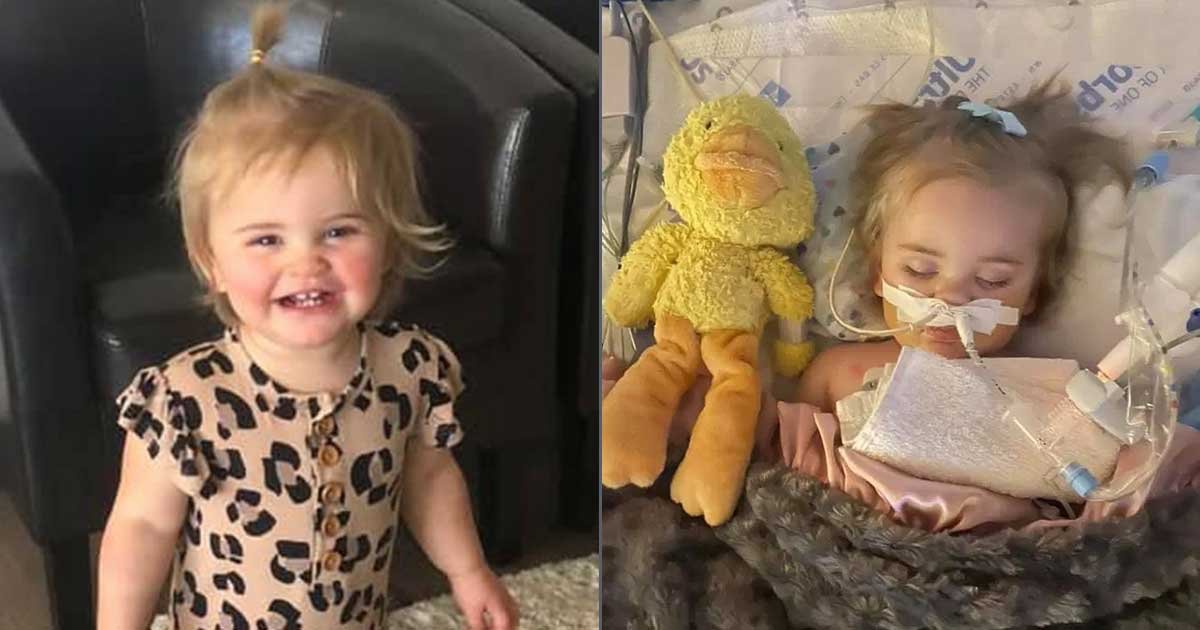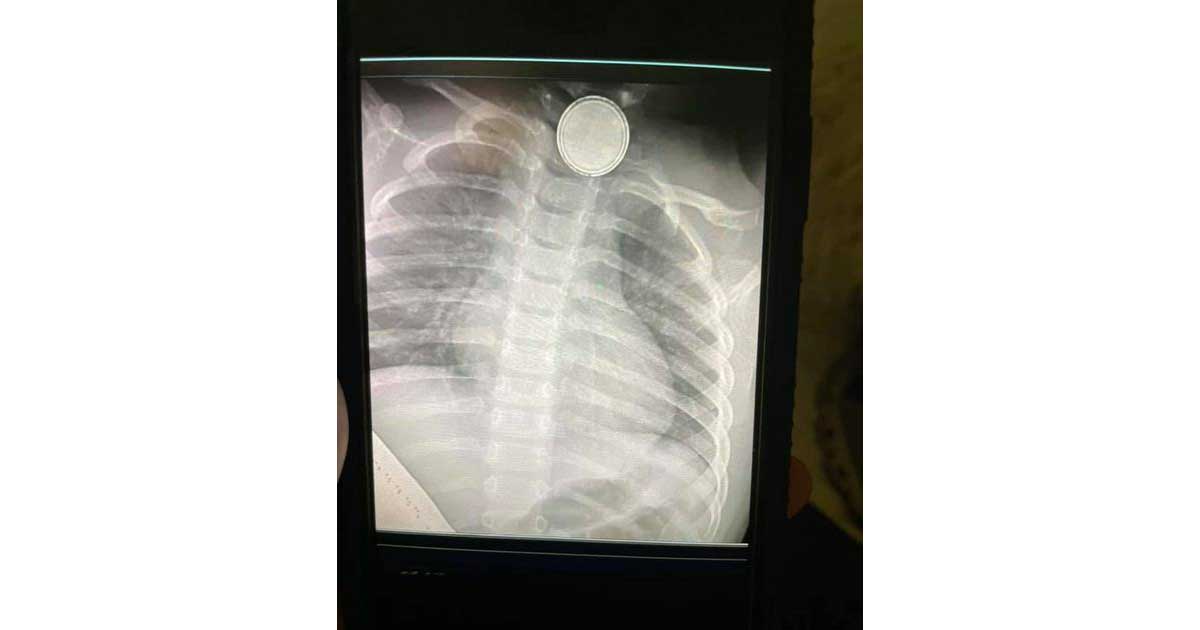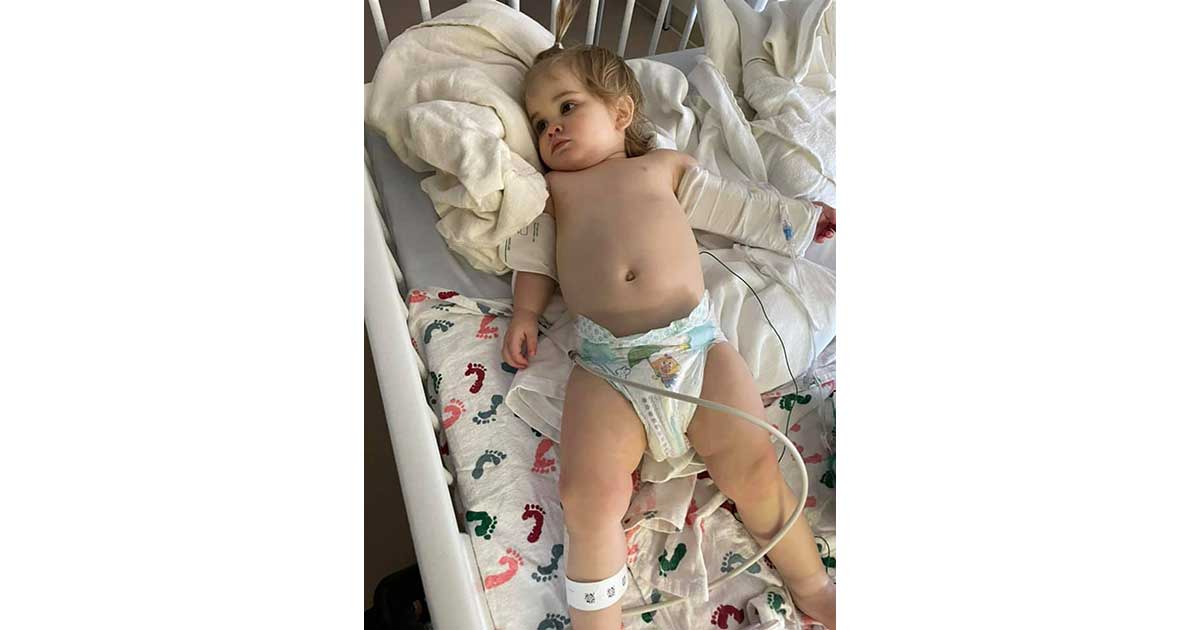A heartbroken mother bravely shares her story to raise awareness about the dangers of button batteries after her daughter died due to complications of swallowing one.
39-year-old Trista Hamsmith from Lubbock, Texas noticed her 17-month-old daughter named Reese started wheezing at the end of October.
The typically lively toddler also became lethargic, prompting Hamsmith to bring her daughter to a pediatrician, who diagnosed the child with croup.
Soon afterward, Hamsmith noticed that a button battery was missing from a remote control so she immediately rushed her child to a local emergency room.
“They did an X-ray and confirmed that it was in there and they did emergency surgery to remove the battery,” she shared.
Reese underwent an emergency surgery to remove the battery from her throat, but it had already burned a hole in her esophagus.
“Once the battery is ingested, it starts to erode and it starts to burn,” Hamsmith said.
“Button battery ingestion is so much more common that people realize.”
Dr. Emily Durkin, medical director of children’s surgery at Helen DeVos Children’s Hospital who did not treat Reese, explained that swallowing button batteries might cause serious injuries for some children.
“If you get a narrow, flat, pancake-like button battery that gets stuck at one of these natural narrowings, then the front wall of the esophagus collapses against the button battery and the back wall,” Durkin said.
“(This) completes that circuit, and electric current actually flows through the esophageal tissues. And when that happens, it starts to kill the tissues at the burn.”
“It can be just a devastating injury for a child,” Durkin continued. “It can require operations and having to be fed with a tube.”
In Reese’s case, a hole burned through her trachea and esophagus, forming a tunnel that allowed air to go where it should not be.
Doctors gave her a gastronomy tube to bypass the hole, as well as a ventilator to support her breathing.
“That morning was the last morning that we saw her as herself,” said Hamsmith.
After another surgery and falling into distress twice, Reese tragically passed on December 17, 2020.
Hamsmith decided to share Reese’s story to teach other parents the dangers of button batteries, as well as to call on manufacturers to start making safer batteries.
“Kids are dying,” she stressed.
“We’ve got to do everything we can to get this information to parents and put pressure on the industry to make changes to protect the kids.”





